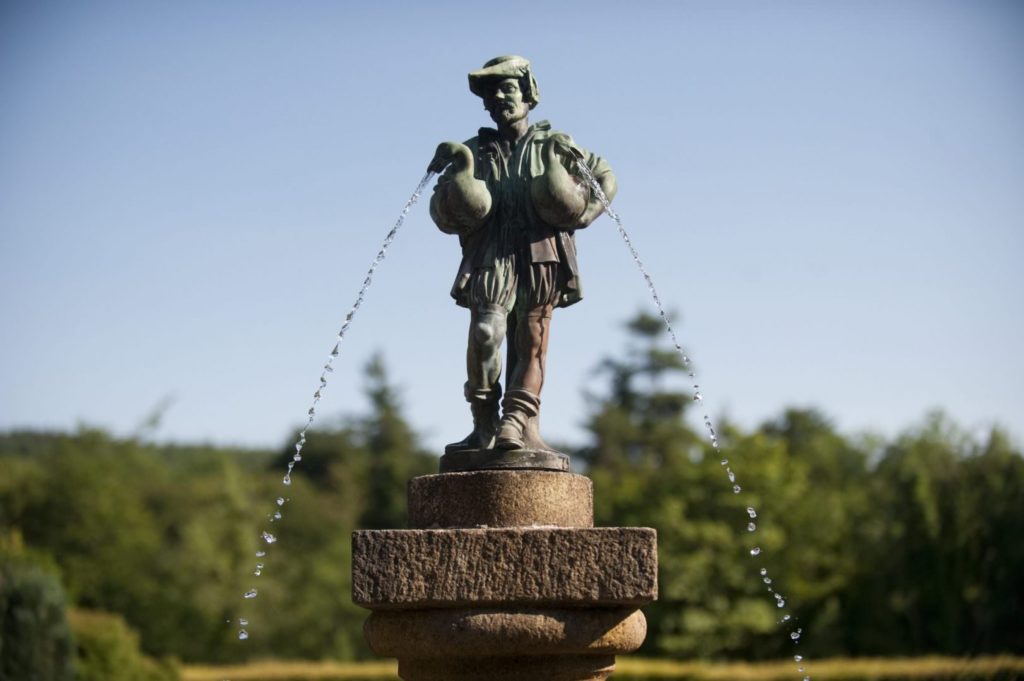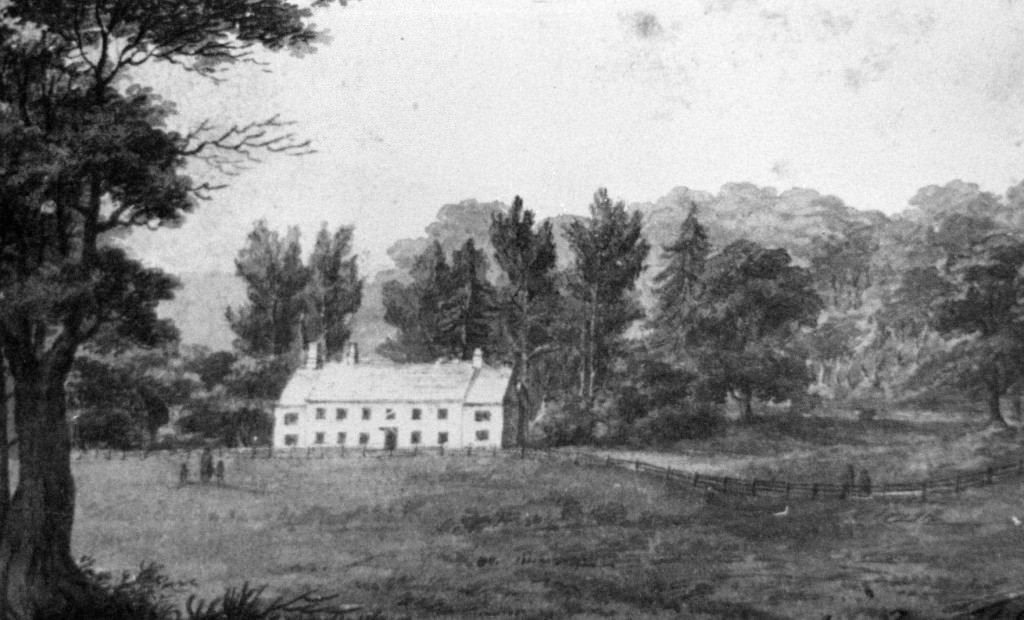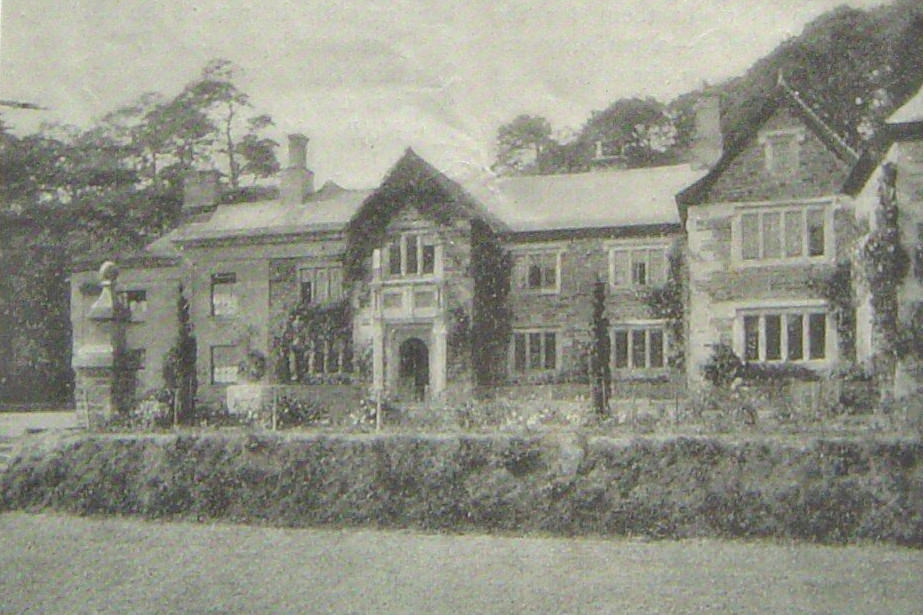HENRY GOULD
Late 1700s – 1800s
Old Madam died by the fire in the front dining room, having refused to be put to bed, on 10th April 1796. It is said that when she died all the shutters blew open in the house and the ghost of Old Madam was seen by a farm hand under a walnut tree in the grounds. Her spirit is still said to haunt the manor, walking the gallery and keeping an eye on the comings and goings in her house.
Her grandson William Baring-Gould did indeed inherit the estate. He did not care much for Lewtrenchard; however lack of finance convinced him to take it on. Although his father was a rich banker, and William and his brothers could want for nothing, William was always short of money. William was a popular, kind-hearted and good looking fellow, nicknamed ‘The Adonis of Devon’ for his looks. William and his wife, Diana Amelia (née Sabine), had six children; four daughters and two sons.
After making some unwise investments, William and Diana Amelia were forced to live at Lewtrenchard. They had to sell Diana Amelia’s preferred residence, Ivy House in Teignmouth, where she was very much a ‘society’ lady.
Diana Amelia’s brother, General Sir Edward Sabine, was an arctic explorer and President of the Royal Society. There is an interesting story about him, that upon leaving for an expedition he promised to marry a lady, but on his return several years later the lady in question had married another and now had a daughter. Sir Edward swore that he would return in 14 years time to marry the daughter. This he did, but by then the daughter’s father had died, so the mother lived with them in what must have been quite a strange and strained household. Sabine Baring-Gould was very fond of his great uncle and used him as a go-between when he fell out with his father.
There is a portrait of the Sabine family on the Gallery.
William and Diana Amelia’s younger son, William Gould went into the army and served in India. His memorial stone is in Lewtrenchard Church and there is some mystery surrounding his early death in India at the age of 33. It was reported that he died of fever, but there are persistent rumours that he was murdered for his attentions to a lady whom he loved.
Their oldest son, Edward, inherited Lew House in 1846, upon the death of his father, William. Unfortunately, Edward also seemed to inherit his father’s dislike for the house. He was known as ‘the Silver Poplar’ due to his very blond hair. He had a very lavish socialite wedding in Exeter, marrying Sophia Charlotte, the daughter of Admiral Bond. Edward also served his country, serving in the Madras Light Cavalry in the service of the East India Company. There is a portrait of him in his uniform in Reception.
When Edward was newlywed, disaster struck whilst he was out in his carriage one day. The carriage turned on its side, and his companion fell on top of him, dislocating his hip. Unfortunately this prematurely ended his career in the East India Company. It was a terrible blow for Edward who remained very restless ever after. He dragged Sophie, his three sons (Sabine, William and Edward) and daughter (Margaret) around Europe, travelling endlessly to wherever took his fancy. Unlike his much loved father, Edward was a man of steel. He insisted that his three sons should learn maths, so that they could become engineers – an employment that Edward himself wished he had pursued. Only William became an engineer, however it is believed he had a nervous breakdown as a result. His son Sabine failed hopelessly in the mathematical department and even to his dying day he could not work out the simplest mathematics. Travelling around so much, meant that the children scraped together an education where they could, although they were all bilingual – Sabine spoke eight languages!
Eventually, after fifteen years of wandering, Edward brought his family back to Devon. They initially lived in the nearby Bratton Clovelly whilst Lewtrenchard was being cleaned up as it was in a bad state of repair. Edward started the beginnings of the house as we know it today. He was short of money and started many mining projects near the house, many of which foundered early on. There is a lake in the grounds at Lewtrenchard which used to be an old lime quarry.
Sophia Charlotte died in 1863 from cancer of the jaw, possibly caused by her false teeth which were said to be made from rhino horns. Sabine was devoted to her; she had a very gentle personality and never complained about her husband, despite suffering intensely whilst they travelling. Sabine said that she had a spiritual sensitivity that enveloped her mind and soul, shirking from anything evil or unlovely. There is a portrait of Sophie with her young son Sabine at the top of the main staircase.
After Sophia’s death Edward re-married to a young woman called Lavinia Snow, who was almost the same age as Sabine, and had two more children with her; Arthur and Leila. She was a greatly loved step mother and was affectionately known locally as ‘Granny Ardoch’. She outlived Edward, who died in 1872, by many years. Lavinia and Sabine were friends into old age, and he took great delight in playing many pranks on her over the years. The one that caused the most consternation was when Sabine sent a ‘hoax’ telegram to her, telling her that her “fat pony” was to be enlisted immediately to help with the war effort! After Edward had died she chose not to move into the Dower House, but instead moved to a house in Lewdown that had a fine view of Brentor Church called Ardoch Lodge; hence the affectionate nickname. Her presence is said to be still felt within that house today.



